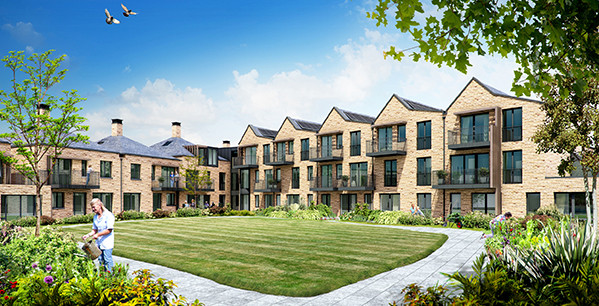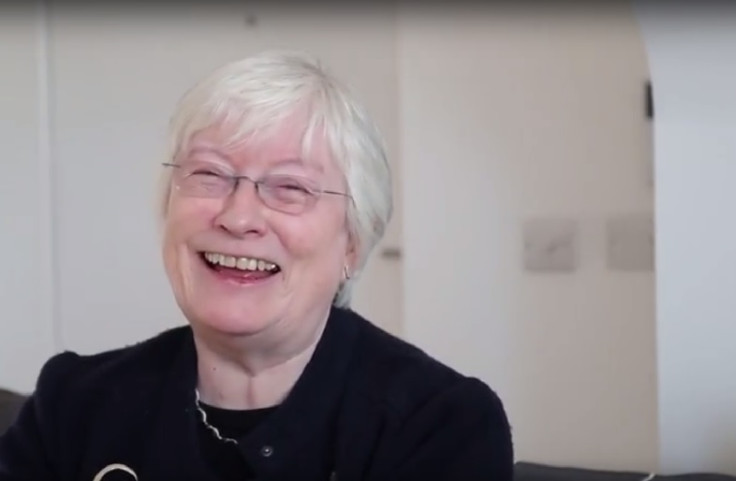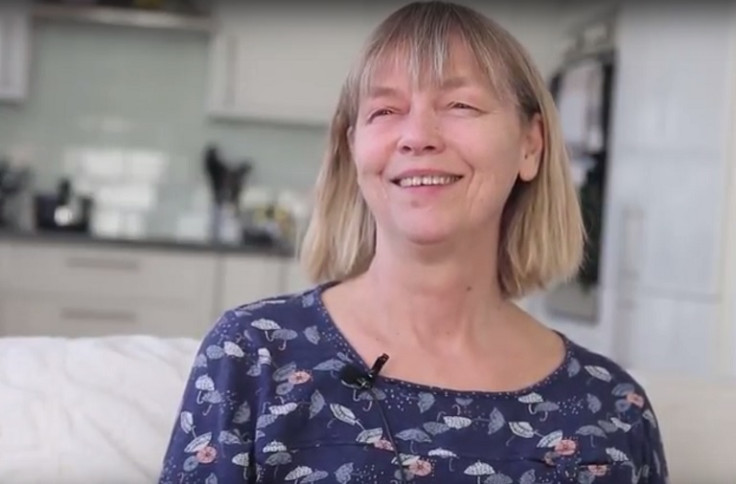A modern utopia: Inside the UK's first women-only housing community
"You feel so supported it's fantastic. I love it."
At the end of the Northern line in London is a block of new-build flats – but it's not your average, overpriced new build, it is a spacious and affordable haven for older women.
It's not a commune, nor is it sheltered housing, but a new phenomenon dreamed up by women in the Netherlands: co-housing for women.
The building, around a ten-minute walk from High Barnet station, is called New Ground and it is run by Older Women's Co-Housing (OWCH), a group of women over 50 who created their own community as an alternative to living alone.
It all started when Maria Brenton, a former university lecturer, realised the needs of older women living on their own when she was researching old age.
Women live longer than men and many have fewer resources because of a variety of factors, from the cost of childcare responsibilities to lower-paid work.
Taking inspiration from the Netherlands, where the idea for co-housing originated, Brenton found a group of women in London were interested in the project – and it took off from there.

Co-housing is about keeping women active and engaged, while tackling the loneliness and social isolation felt by so many older women who live alone. "What we basically believe is that this way of living, where people have this sense of agency, where they feel in charge of their own lives, keeps people more motivated, happier and healthier.
"Someone will bump into someone at the front door and say 'I'm off for a fish and chip supper at the pub down the street' – and they'll say, I'll come – I'll get my coat!"
'It's the group that's in charge'
The building, complete with landscaped gardens and an orchard, was finished towards the end of 2016. It offers 17 flats for sale, the largest of which have three bedrooms and cost around £400,000, alongside eight for social rent. The landlord for the rented flats is a small housing association called Housing for Women.
For the social housing, none of the money comes from public money – it is from the Tudor Trust, which supports voluntary and community groups in the UK. It also receives financial support from the Hanover Housing Association.
"This is a mixed tenure group – there are leaseholders and social renters," Brenton says. "The group was adamant from the beginning that it shouldn't just be for women who had housing wealth, but for women who couldn't afford to buy their own homes."
"Often people say, isn't it the same as sheltered housing for older people? It really isn't. The difference is that it's the group that's in charge here. We run it, we manage it. All the decisions are taken by the group together."

When Clare Martin moved into New Ground Co-housing at the beginning of January, she reaped the benefits of living in a close-knit community immediately.
"It was fairly hellish for the first few days because my heating wasn't working – but immediately my neighbours lent me their electric heaters. One of my neighbours cooked a meal for me. You feel so supported it's fantastic. I love it."
Like others in the group, Martin joined OWCH because she found things hard on her own. "Things like, who will take you for a hospital appointment and who's going to look after the cat," she says. "And I really liked all the women when I met them – I just thought they were wonderful and I wanted to be there with them."
Having lived in her house for 27 years, it was understandably difficult to leave but Martin isn't the only one to have benefited. "I left my house, which was a four bed house, and it was freed up and there is now a family with three kids there. So I think it's an idea that's time has come now that there is a housing shortage."
A mix of different women
To be considered for a place at New Ground, membership is mandatory. It costs £60 a year and newcomers are approved by existing members.
The ages of residents ranges from 50 to a sprightly 87-year-old woman called Hadie. Some people are still working – including Hadie, who tucks away confidential papers when we arrive at her spacious flat. Those renting flats tend to be younger and two of them are refugees from Iran.
There is a mix of women living at New Ground Co-housing. "Two are a married couple, the rest of single, widowed, divorced, never married, some lesbian, a right old mix really," Brenton says.

There are some rules that can't be broken – namely, that only women can live there. If a resident was dating a man, he could come a stay but couldn't move in. "If they wanted to set up together permanently, she would have to move out," Brenton says. This decision was made by the group.
Each flat is large and has a kitchen and bathroom, but the building has a common room and a dining room, as well as a communal kitchen. There are several policies to keep everything running smoothly, such as a mutual support document and a conflict resolution policy. Everyone pitches in when it comes to looking after these communal areas – and there is a task force for the garden.
'It's about keeping autonomy'
Most importantly, each woman is independent. "They look out for each other not after each other," Brenton says. "If somebody needs personal or professional care, they need to get it from the right place. But day to day, someone needs to take the dog out for a walk, someone to bring you lunch, or do shopping – they do all that for each other."
"It's about keeping their autonomy. And they're a group of women who don't like being done unto."
Vivien Sheehan, who used to work as a PA, moved into New Grounds in mid-December. She heard of OWCH three years ago when visiting a friend in the area.
"I'd had a period of illness and I realised at that time that I didn't have close friends living near me," she says. "I was lucky that friends came to help me out, but no close neighbours. This seemed an ideal community and I liked the idea of we all look after each other and we can do things for each other."
The best thing about women's co-housing? "I think being with like-minded people when you want to be, you can join in with what's going on, but you can close your door and be on your own. I think also some of the tasks we do – last week we had an open day for the neighbours – it was really fun, like preparing for a party.
"And just sharing things, I used to get fed up with gardening but when you're doing it with other people, it's just more fun. I think we'll all just keep going a bit longer than we would have done otherwise."
© Copyright IBTimes 2025. All rights reserved.





















